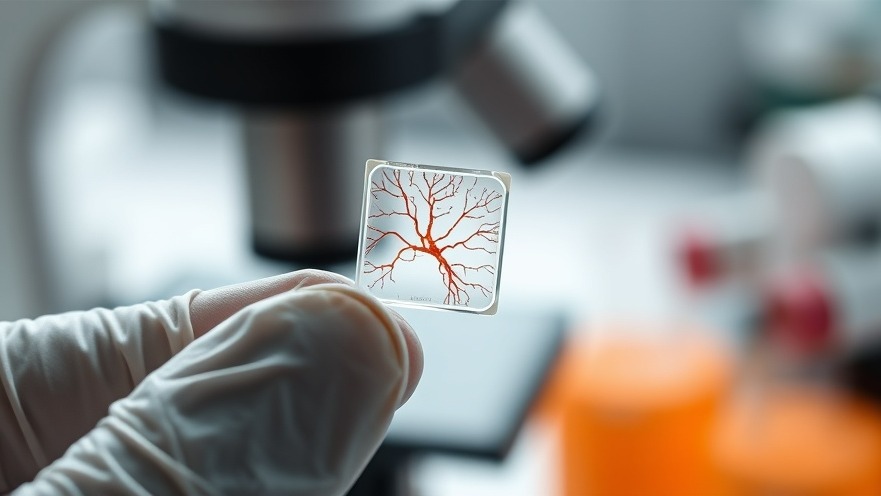
A Breakthrough in Biomedical Research: The Future of Organs-on-a-Chip
As our understanding of bioengineering expands, the advent of organs-on-a-chip signifies a transformative leap in biomedical research, offering unprecedented opportunities to study human physiology without the ethical dilemmas associated with animal testing. Researchers at TU Wien have recently succeeded in creating miniature organ models that include natural blood vessels, promising to elevate the efficacy of drug testing and disease modeling.
The Significance of Blood Vessels in Miniature Organs
Traditionally, the miniaturization of organ models has faced a significant barrier: the lack of a functional vascular system. Blood vessels are critical for nutrient exchange and the pharmacokinetic behavior of drugs. Alice Salvadori from the TU Wien research group highlights that real physiological responses can only be accurately studied when the vessels mimic those found in human tissues.
Leveraging Advanced Laser Pulses for Precision Engineering
The technique that has opened new avenues for vascularized organ models involves the use of ultrashort laser pulses to etch precise microchannels in hydrogels. These hydrogels serve as a supportive matrix that can host living cells, facilitating the formation of vessels akin to natural blood vessels. The result of this research provides a well-defined and reproducible structure that is crucial for reliable experimental outcomes, addressing the previous challenges of variability in self-organized models.
How This Innovation Impacts Patient Care
For concierge health practitioners, understanding and adopting these technological advancements can lead to enhanced patient care. With more predictive models available for studying drug interactions and tissue responses, practitioners can anticipate patient reactions to new therapies more accurately, ultimately improving treatment outcomes.
Examples of Potential Applications
The organ-on-a-chip technology has numerous potential applications within the healthcare sector. For instance, researchers can simulate liver functions to study the metabolism of drugs before they hit the market, ensuring safety profiles are established early in the development phase.
Future Directions: What's Next for Organs-on-a-Chip?
As this technology matures, we may see a surge in multi-organ-on-a-chip systems that mimic complex body systems and their interactions. This evolution could drive forward personalized medicine approaches, where treatments specifically tailored to individual physiological profiles can be tested and refined.
Concluding Thoughts: Embracing Innovation in Healthcare
Incorporating cutting-edge developments such as organ-on-a-chip models into healthcare practices is no longer just a distant future; it is becoming a present reality that healthcare providers must engage with. By staying informed about these advancements, you position yourself and your practice to leverage new tools that can effectively meet patient needs.
Don't miss out on the opportunity to enhance your practice. Stay updated with the latest innovations and explore how they can be implemented in your healthcare solutions for optimal patient outcomes. By embracing technology, you not only advance your practice but also enhance the care you provide.
 Add Row
Add Row  Add
Add 




Write A Comment